| Country | Student fee |
|---|---|
Spain 2015/16 - student fees and grants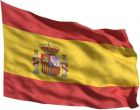 | The amount of fees is determined by the kind of studies, the number of ECTS taken and the number of exams failed in each subject. In addition, amounts differ between regions as each one has a different fee range. There is no difference in fees between full and part-time students. For international students (from outside the European Union) who do not have resident status in Spain, the fees can be increased, depending on the region. Exemptions from fees are possible and based on need criteria. In addition, large families and disabled persons have very significant discounts, and may even be exempt. |
Spain 2016/17 - student fees and grants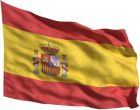 | The amount of fees is determined by the study field, the level (1st or 2nd cycle), the number of ECTS taken and
the number of times a student has taken each subject. In addition, amounts differ between Autonomous
Communities as each one has a different fee range. There is no difference in fees between full-time and part-time
students.
Short cycle students are not required to pay any fees in most Autonomous Communities. Exemptions from fees are possible and based on need criteria. In addition, large families and disabled persons have very significant discounts, and may even be exempt. International students (non-EU) who do not have resident status in Spain may have to pay fees, depending on the region. |
Sweden 2013/14 - student fees and grants | No fees for Swedish/EU/EFTA/EEA students.
Other students pay fees since autumn 2011. Higher education institutions determine the size of the fees, based on the principle of full cost coverage. |
Sweden 2015/16 - student fees and grants | No fees for Swedish/EU/EFTA/EEA full time and part time students. Other students pay fees since autumn 2011. Higher education institutions determine the size of the fees, based on the principle of full cost coverage. As of 1 February 2015, Swedish/EU/EFTA/EEA full time and part time students can be subject to tuition fees when taking part in international collaborations if the fees do not go to the Swedish institution and do not relate to the part of the education organised by the Swedish institution. |
Sweden 2016/17 - student fees and grants | No fees for Swedish/EU/EFTA/EEA full-time and part-time students.
Other international students pay fees since autumn 2011. Higher education institutions determine the size of the fees, based on the principle of full cost coverage. As of 1 February 2015, Swedish/EU/EFTA/EEA full-time and part-time students can be subject to tuition fees when taking part in joint and multiple degree programmes if the fees do not go to the Swedish institution and do not relate to the part of the education organised by the Swedish institution. |
Switzerland 2013/14 - student fees and grants | Higher education institutions define their own fees. Fees usually comprise fees for administration (admission,
registration, certification) and tuition. Additional mandatory contributions for examinations, libraries, sports facilities,
social and cultural institutions are possible.
Some categories of students pay reduced fees (students on leave of absence, medical students during their placement year, doctoral students). Students in difficult economic circumstances can apply for a waiver or reduction of tuition fees at most higher education institutions. Some higher education institutions charge higher fees for both students from within and outside the EU than for Swiss students. |
Switzerland 2015/16 - student fees and grants | Higher education institutions define their own fees. Fees usually comprise fees for administration (admission, registration, certification) and tuition. Additional mandatory contributions for examinations, libraries, sports facilities, social and cultural institutions are possible. Some categories of students pay reduced fees (students on leave of absence, medical students during their placement year, doctoral students). Students in difficult economic circumstances or part-time students can apply for a waiver or reduction of tuition fees at most higher education institutions. Some higher education institutions charge higher fees for both students from within and outside the EU. |
Switzerland 2016/17 - student fees and grants | All students (short-cycle, first and second cycle) pay fees. Higher education institutions define their own fees. Fees
usually comprise fees for administration (admission, registration, certification) and tuition. Additional contributions
for examinations, libraries, sport facilities, social and cultural institutions are possible.
Students on leave of absence, medical students during their placement year, doctoral students pay reduced fees. Students in difficult economic circumstances or part-time students can apply for a waiver or reduction of tuition fees at most higher education institutions. There are no short cycle programmes in public or publicly subsidised higher education institutions in Switzerland. Some higher education institutions charge higher fees for students from EU and beyond. |
Turkey 2013/14 - student fees and grants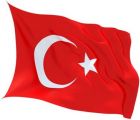 | 1st cycle university students enrolled in a morning education do not pay fees. Public universities are financed by
the Government and have an additional income from the students' fees (not more than 10 % of their income). Non-
profit foundation universities can receive a limited amount of financial support from the Government, but their
income is mainly based on fees. Public universities provide morning and evening education and fees vary
accordingly.
1st cycle fees in the evening education at public university range between TL 962 and 2 134. The most common value is TL 1 250. Foundation universities provide only morning education with fees from TL 9 340 to 52 900. The most common value is TL 20 000. In the 2nd cycle, public universities charge from TL 250 to 550; the most common value is TL 350. Foundation universities charge from TL 5 000 to 40 000; the most common value is TL 20 000. Exceptionally, students who study in non-profit foundation universities may receive discounts from the university. For example, depending on the performance they show in university entrance exam, they may be asked to pay only half or five eights of the fee (this may vary from one university to another). International students pay higher fees. |
Turkey 2015/16 - student fees and grants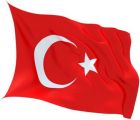 | Public university students following daytime education programmes do not pay fees. Public universities are financed by the Government and gain an additional income from students' fees (not more than 10 % of their income). Public universities also provide evening education for which fees can be charged. Fees in evening education at public universities range between TL 962 and TL 2 134. Non-profit foundation universities can receive a limited amount of financial support from the Government, but their income is mainly derived from fees. Foundation universities provide only daytime education with fees from TL 8 000 to TL 55 100. In the 2nd cycle, public universities do not charge fees. International students pay higher fees. |
Turkey 2016/17 - student fees and grants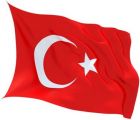 | Public university students following first cycle daytime education programmes do not pay fees. Public universities
may charges fees for evening programmes, which range from TL 962 and TL 2 134 per year.
In the 2nd cycle, public universities do not charge fees in daytime programmes. While fees in evening programmes vary among universities. No fees are charged for participating in full-time daytime short cycle programmes in public higher education institutions. Students in evening education pay fees (TL 770-TL 4 268 per year). International students pay higher fees. |
Wales 2013/14 - student fees and grants |
1st cycle full time – fees are set by institutions but capped at a maximum of GBP 9 000 for institutions with an approved tuition fee plan to
promote fair access and GBP 4 000 for institutions without a plan. Students are not required to pay up front and can apply for a fee grant of
up to GBP 5 425 and a fee loan of up to GBP 3 575 to cover the full tuition fee. The ‘most common amount’ shown represents the repayable
fee of GBP 3 575. Loan repayments are income-contingent, and made at the rate of 9 % of income above the threshold of GBP 21 000.
These fees apply to students from all parts of the UK but the fee grant is only available to students from Wales.
1st cycle part-time – fees are unregulated. 2nd cycle – fees are unregulated. The ‘most common’ fee (GBP 3 900) represents an indicative amount for doctoral research programmes (which may incorporate masters level study) set by the Research Councils and used as a guide by many institutions. Actual fees charged vary widely, particularly for taught programmes. 1st and 2nd cycle international students – fees are unregulated. |
Wales 2015/16 - student fees and grants | 1st cycle full time – fees are set by institutions but capped at GBP 9 000 for institutions with an approved tuition fee plan to promote fair access (to safeguard fair access for low income and other under-represented groups) and GBP 6000 for institutions without a plan. Students are not required to pay up front and can apply for a fee grant of up to GBP 5 190 and a fee loan of up to GBP 4 000 to cover the full tuition fee. The ‘most common amount’ shown represents the repayable fee of GBP 4 000. Repayments are income-contingent and are set at 9 % of earnings above the threshold of GBP 21 000; interest rates are Retail Price Index plus 3 %. 1st cycle part-time – fees are unregulated. Students can apply for a tuition fee loan of up to GBP 2 625 if they are studying in Wales, or GBP 6 750 if they are studying elsewhere in the UK. The loan amount depends on the course intensity, which must be at least 25 % for the student to qualify for the loan. 2nd cycle – fees are unregulated and vary widely. The ‘most common' figure of GBP 4 052 represents the indicative fee level for research students in 2015/16, set by Research Councils UK. 1st and 2nd cycle international students – fees are unregulated. |
Wales 2016/17 - student fees and grants | 1st cycle full-time programmes: fees are set by institutions but capped at GBP 9 000 for institutions with an approved
tuition fee plan to promote fair access (to safeguard fair access for low income and other under-represented groups)
and GBP 4 000 for institutions without a plan. Students are not required to pay up front and can apply for a fee grant.
1st cycle part-time programmes: the maximum fee is GBP 2 625 for Welsh students studying in Wales. 2nd cycle programmes: fees are unregulated and vary widely. The 'most common' shown (GBP 4 121) represents an indicative fee level for research students in 2016/17 set by Research Councils UK. Short cycle programmes: the same fees apply as for students taking 1st cycle programmes. 1st and 2nd cycle international students: fees are unregulated. |